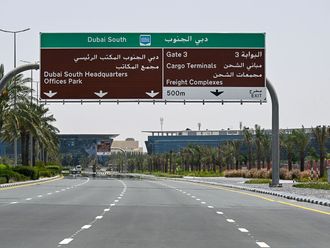London: A hung parliament in Britain could cost consumers as much as £5,000 (Dh28,000) a year due to the higher cost of mortgages, petrol prices and holidays abroad, an independent economic think-tank has calculated.
Interest rates could rise to 3.5 per cent, from a record low of 0.5 per cent, the pound would fall and the financial markets could go into "full-scale crisis", the Centre for Business and Economic Research predicted in a report for The Daily Telegraph.
Its predictions lay out both a "best case" and "worst case" scenario over the next three years, making clear that a hung parliament would in all cases lead to higher interest rates and a falling pound.
Douglas McWilliams, the chief executive of the CEBR said: "Most people don't seem to realise how fragile the economy is. And now is not the time to sort out the deficit by taking a stab in the dark with a hung parliament."
Many economists worry that the immediate effect of a hung parliament would be that the pound would fall, as international investors, concerned that the government could not tackle the deficit, started selling British assets.
Effects
This would push up the price of imports, causing inflation and forcing the Bank of England to raise interest rates.
The CEBR said that even in its best-case scenario the pound would fall to $1.34 and under its worst case it would fall to $1.30.
Under the worst scenario, drivers would have to spend £45 a year more on petrol because of the weak pound, using the AA's calculations for how much petrol the average family consumed.
If interest rates were to jump to 3.5 per cent after the election, the estimated 6.8 million home owners on a variable rate mortgage would be hit hard.
Extra payments
Someone on a typical £150,000 repayment mortgage would have to find an extra £4,500 a year, or £375 a month.
Even, under CEBR's best-case scenario, rates are expected to rise to two per cent, adding £188 to the monthly mortgage bill.
However, the think-tank predicted this increase under a clear Tory victory.
The forecast came as figures released by the Office for National Statistics underlined the fragility of the economic recovery.
Gross domestic product, the benchmark used to measure the economy, increased by 0.2 per cent between January and March, which was weaker than the 0.4 per cent predicted by most economists and a slow down from 0.4 per cent growth in the final quarter of 2009.












